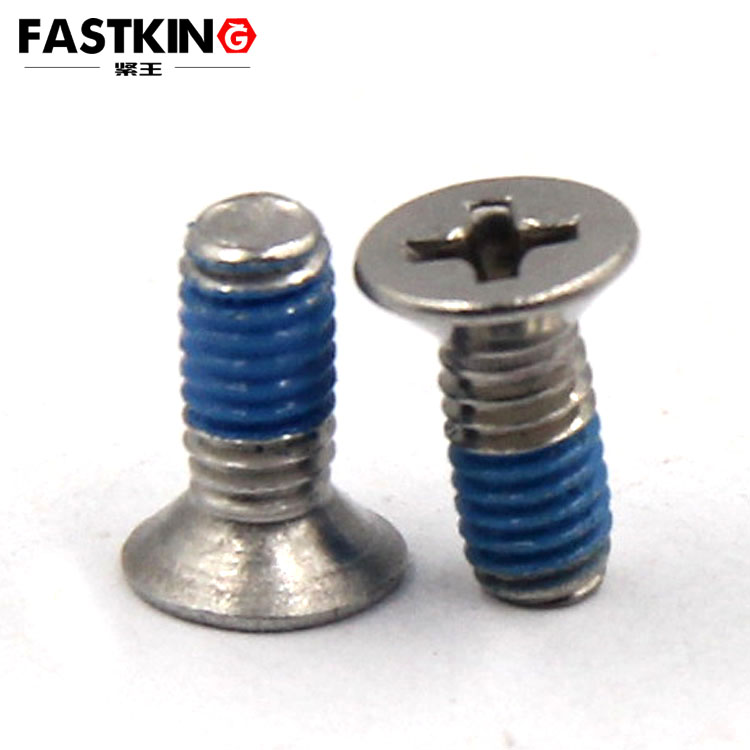In fields such as mechanical manufacturing, electronic equipment, and automotive parts, screw loosening is a common hidden danger of equipment failure. Factors like vibration, temperature changes, and long-term loads easily widen the thread fit gap of traditional screws, eventually leading to connection failure. However, thread-locking screws fundamentally address this pain point through "special thread adhesive coating technology," emerging as a new fastening option that balances reliability and convenience.
The core advantage of these thread-locking screws lies in the special thread adhesive uniformly coated on the thread surface. This adhesive is not an ordinary binder but a thixotropic anaerobic adhesive: when unassembled, the adhesive layer remains in a stable liquid state, which does not affect the storage and transportation of the screws. After the screw is screwed into the bolt, air in the thread gap is expelled, and the adhesive layer cures rapidly in an anaerobic environment to form a high-strength bonding layer. This layer firmly "locks" the screw and bolt together, achieving permanent and strong anti-loosening effects. The cured adhesive layer not only resists reverse torque caused by vibration but also blocks moisture and dust from entering the thread gap, slowing down rusting and providing dual protection for connection stability.
In practical applications, the four key features of thread-locking screws precisely meet the production needs of enterprises.
First,
easy assembly greatly improves efficiency. The thread adhesive is applied in a standardized manner before leaving the factory, so customers do not need to purchase additional adhesives, equip glue-coating equipment, or train workers. They can directly use the screws for assembly upon receipt. This is especially suitable for automated production lines, avoiding inconsistencies in anti-loosening effects caused by uneven manual glue application.

Second, space adaptability breaks through scenario limitations. The anti-loosening effect relies on the thread adhesive rather than additional anti-loosening structures (such as spring washers or lock washers), so the screw itself maintains a compact size. Even in narrow spaces like the interior of electronic devices or precision instrument cavities, it can be easily installed without occupying extra assembly space.
Third, cost-effectiveness helps enterprises reduce costs and increase efficiency. In the short term, it eliminates the costs of adhesive procurement, glue-coating equipment investment, and maintenance. In the long term, thread-locking screws significantly reduce equipment maintenance and part replacement costs caused by screw loosening, as well as downtime losses. Taking automotive electronic modules as an example, after using thread-locking screws, the module failure rate drops by more than 60%, and the annual maintenance cost decreases by nearly 30%.
Fourth, customization capability meets personalized needs. It can adjust the thread adhesive formula and coating amount according to customers’ special requirements for screw materials (carbon steel, stainless steel, titanium alloy), specifications (metric, American standard), and anti-loosening strength (low, medium, and high torque requirements). It can even adapt to special working conditions such as high temperatures and high corrosion, providing tailored fastening solutions for customers in different industries.
Whether for fixing micro-components in consumer electronics or assembling automotive chassis in vibrating environments, thread-locking screws, with their characteristics of "ready-to-use, long-term anti-loosening, and controllable cost," have become a key fastener in modern manufacturing to improve product reliability and optimize production processes, helping enterprises strike the perfect balance between efficient production and quality assurance.
